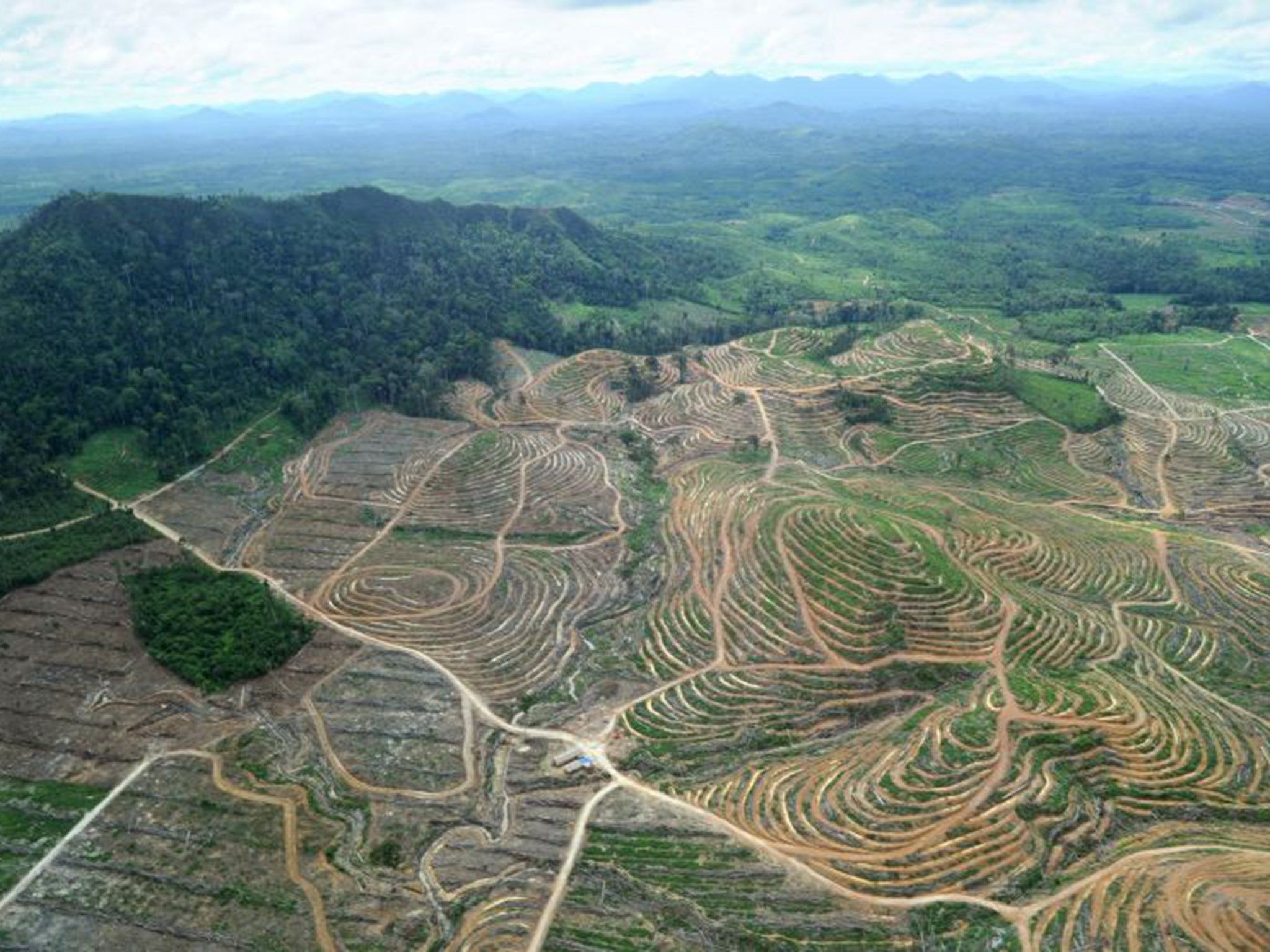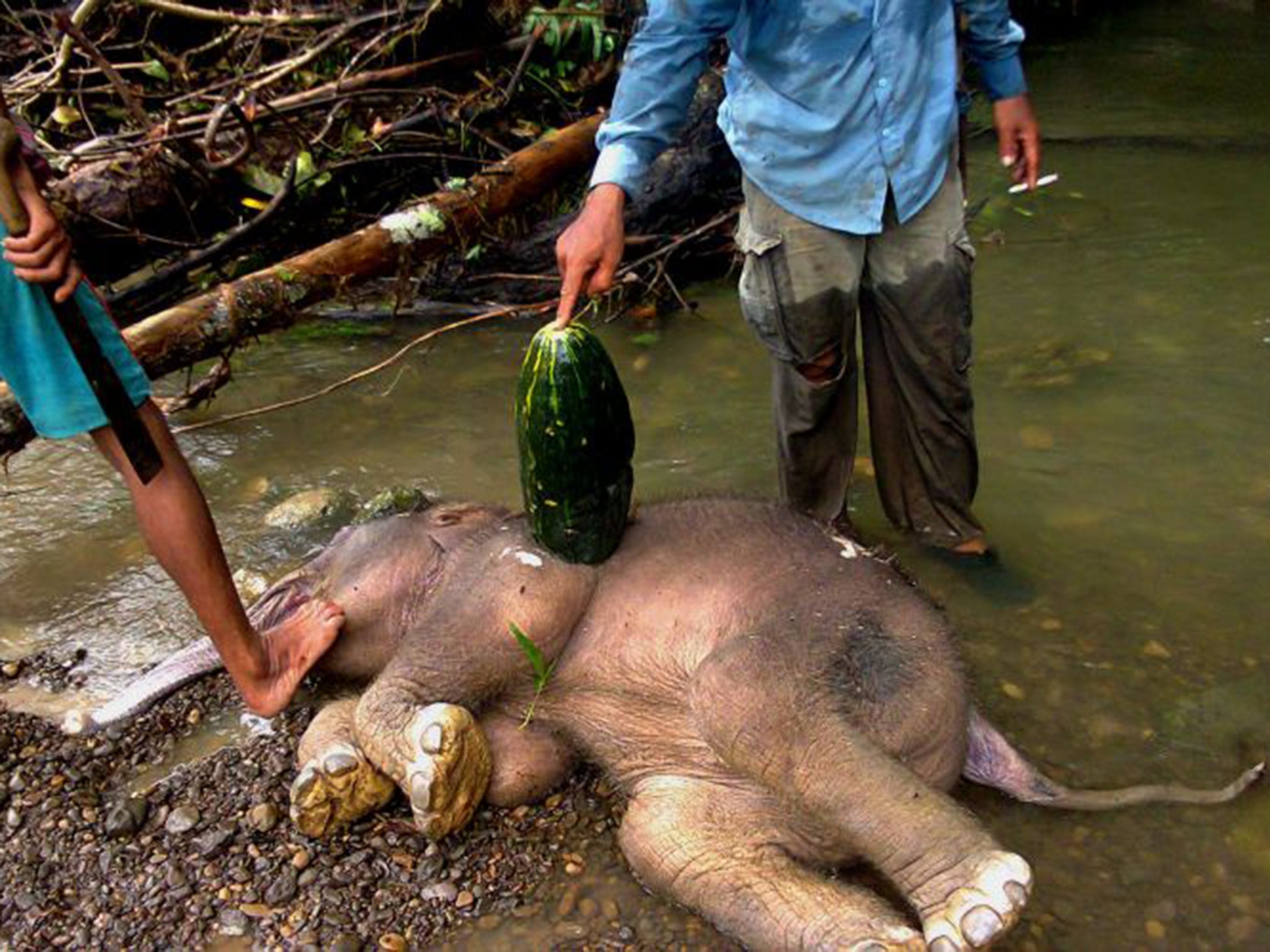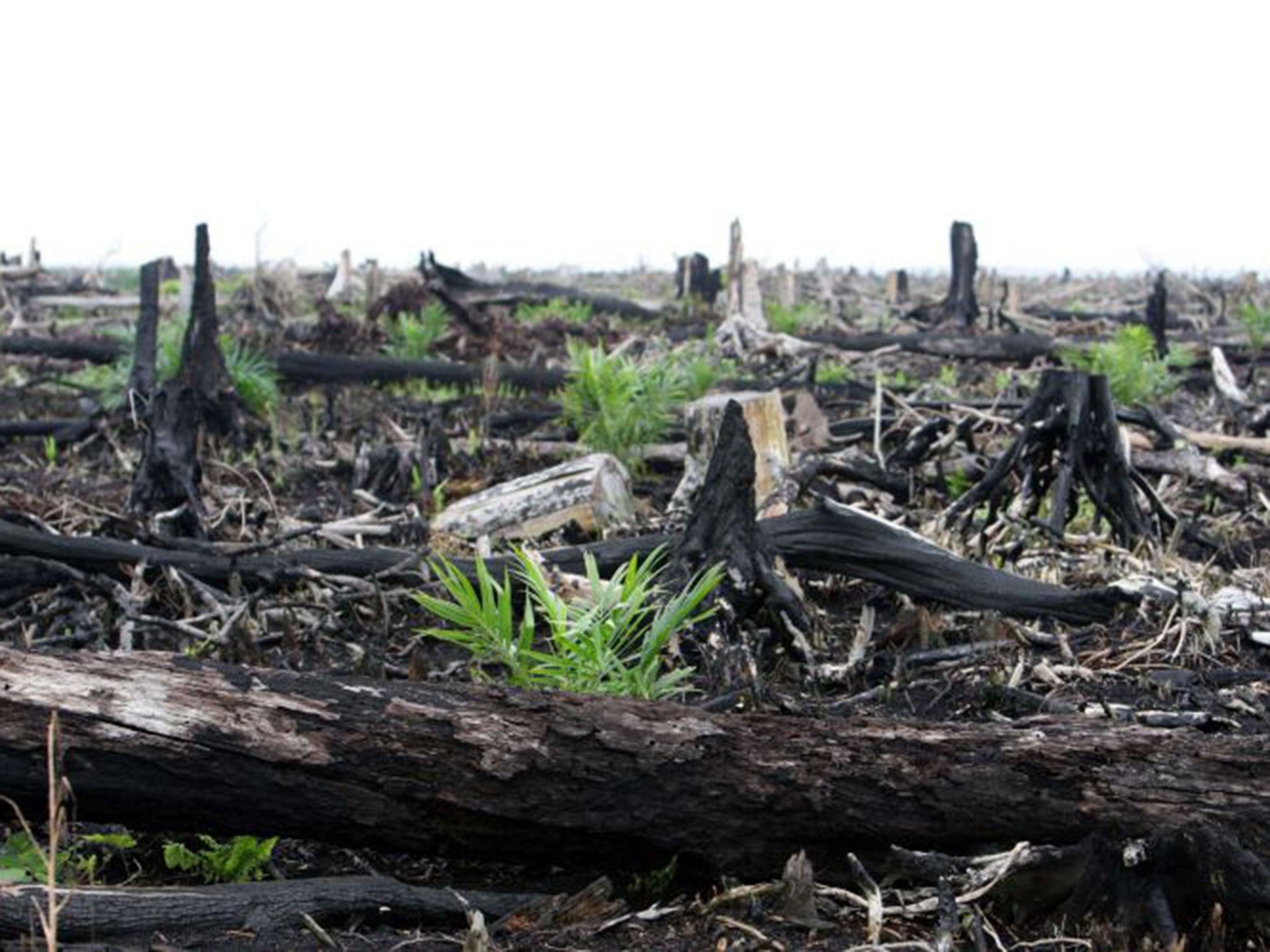Jardine Matheson subsidiary accused of threatening at-risk species by cutting down swathes of rainforest for palm oil plantations
Campaigner's claim AAL has felled 14,000 hectares of forest since 2006, destroying the habitat of Sumatran elephants and tigers

Your support helps us to tell the story
From reproductive rights to climate change to Big Tech, The Independent is on the ground when the story is developing. Whether it's investigating the financials of Elon Musk's pro-Trump PAC or producing our latest documentary, 'The A Word', which shines a light on the American women fighting for reproductive rights, we know how important it is to parse out the facts from the messaging.
At such a critical moment in US history, we need reporters on the ground. Your donation allows us to keep sending journalists to speak to both sides of the story.
The Independent is trusted by Americans across the entire political spectrum. And unlike many other quality news outlets, we choose not to lock Americans out of our reporting and analysis with paywalls. We believe quality journalism should be available to everyone, paid for by those who can afford it.
Your support makes all the difference.Jardine Matheson, a giant £40bn-a-year conglomerate with a hand in everything from luxury hotels to used-car sales, has been accused of threatening the survival of endangered species such as the Sumatran elephant by cutting down swathes of “the world’s last great rainforests”.
The firm, which began trading opium in China in the 19th Century, is controlled by the proudly Scottish Keswick family, who are Tory party donors and friends of David Cameron.
A team of researchers, working for US-based campaign group Forest Heroes and others, used satellite images, drones and reports from the field, which they claim establishes that palm oil firm Astra Agro Lestari (AAL), a subsidiary of Jardine Matheson, has felled more than 14,000 hectares of forest since 2006 in Indonesia.
The loss of vast areas of rainforest to make way for palm oil plantations has put the survival of animals such as orang utans, Sumatran elephants and tigers at risk, but most other companies in the industry have signed up to strict “no deforestation” policies.

The researchers also claimed that AAL drained peatland to make way for palm oil plantations and in doing so produced annual carbon emissions equivalent to those emitted by 830,000 cars. And they highlighted several disputes over land with indigenous people in Indonesia, including one alleged incident in which staff from an AAL plantation are said to have attacked and burned a community camp set up on its land. AAL said it has strong relationships with local communities and an active community support programme in Indonesia.
Forest Heroes hopes to put pressure on Jardine Matheson, one of the 200 largest companies in the world, by persuading major investors to get rid of their shares in the company because of ethical concerns about AAL’s operations.
To highlight their campaign, they plan to hold demonstrations outside one of Jardine Matheson’s most high-profile business, the Mandarin Oriental luxury hotel chain.
In a report based on the researchers’ findings, Forest Heroes said: “The Mandarin Oriental hotel offers its guests sophisticated elegance and luxury… but what they won’t tell you is that their parent company is responsible for enormous amounts of rainforest destruction and is helping drive the critically endangered Sumatran elephant to extinction.
“Staying at Mandarin Oriental sends profits to a company that’s cutting down the world’s last great rainforests – Jardine Matheson.”
It said Astra had “cleared vast areas of rainforests to grow palm oil”, including areas of elephant and tiger habitat in the Sampoiniet district of Aceh, Indonesia. “As Astra’s parent, Jardines could stop this destruction immediately,” Forest Heroes said.
“Many Sumatran elephants — a critically endangered species — have already been killed in the area,” the campaign group added.
And in central Sulawesi, rainforest is currently being cleared at some of the five Astra plantations, according to the researchers. The company has set aside some forest land because of its “high conservation value”, but more than 3,000 hectares of pristine woodland are not included in this voluntarily protected area.
The Keswicks are descendants of one of the original founders of Jardine Matheson — whose exploits in China in the aftermath of the infamous Opium Wars were turned into a 1980s TV mini-series, Noble House, starring Pierce Brosnan.
A young David Cameron worked briefly at the company’s office in Hong Kong in the 1980s and his father Ian was a friend and stockbroker to the family. Ben Keswick, Jardine Matheson’s current managing director, was among a number of British business delegates on the Prime Minister’s plane for a trip to Asia in 2012. Sir Henry Keswick and his brother Simon Keswick have donated substantial amounts to the Conservative Party.
In a statement, Jardine Matheson said that it believed AAL’s sustainability practices “are among the best in the industry”. And the Mandarin Oriental, stressing it was “a separate public company”, said its sustainability practices “are among the best in the hospitality industry”.
AAL said it took “environmental stewardship very seriously” and pointed to its “numerous environmental awards”.
“AAL only ever develops plantations on land designated and granted by the Government for plantation use. All of AAL’s palm oil plantations are outside protected forest and conservations areas,” it said. The company added that it adhered to the laws of Indonesia and there is no suggestion the firm has done anything illegal.
AAL stressed it adhered to one scheme, the Indonesian Sustainable Palm Oil System, and revealed it was “actively working towards signing up to” the much tougher Indonesian Palm Oil Pledge (Ipop). It said it was “carrying out a detailed assessment of all of its practices to determine what specific steps are required” to join Ipop.
The campaigners said if AAL did sign up to Ipop, this would be welcomed as a breakthrough.

But Deborah Lapidus, director of the Forest Heroes campaign, was cautious. She said 90 per cent of globally traded palm oil was covered by “responsible sourcing guidelines” but that in her view AAL had remained “one of the most backward-looking, do-nothing palm oil companies on the planet”. The firm refutes her assessment of the situation.
“For now, its sustainability practices are at the bottom of the industry, by any measure. But that can change,” she said. “If Jardines and Astra Agro Lestari are serious about adopting a meaningful standard for responsible palm oil, that means first and foremost issuing a ‘No Deforestation, No Peat, and No Exploitation’ policy - to align its practices with the aims of Ipop and industry norms.
“Additionally, AAL’s senior leadership would need to end its vocal and vigorous opposition in the Indonesian Palm Oil Growers’ Association to Ipop’s goals of working with the government to protect forests, peatlands, and communities.”
Join our commenting forum
Join thought-provoking conversations, follow other Independent readers and see their replies
Comments